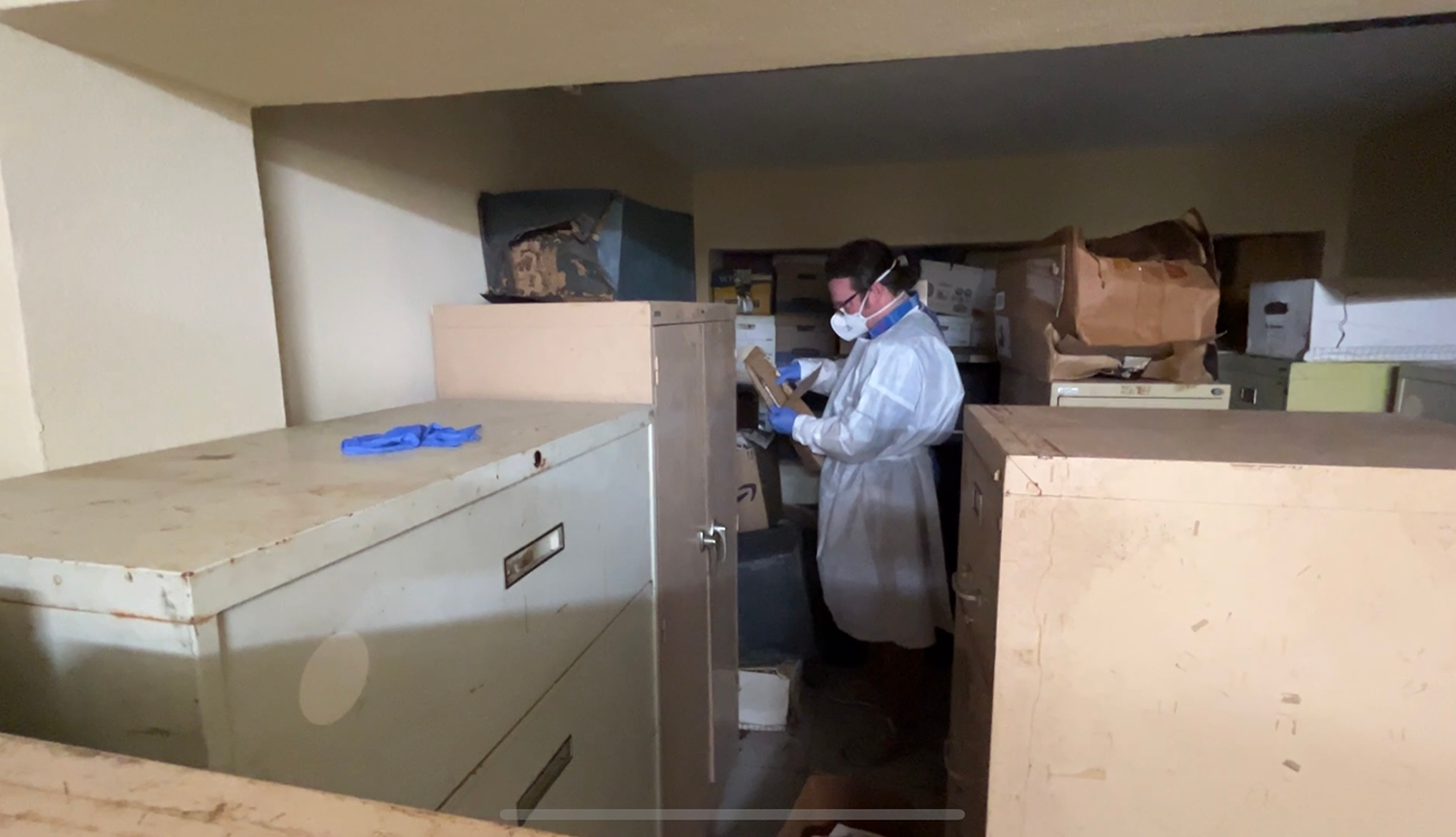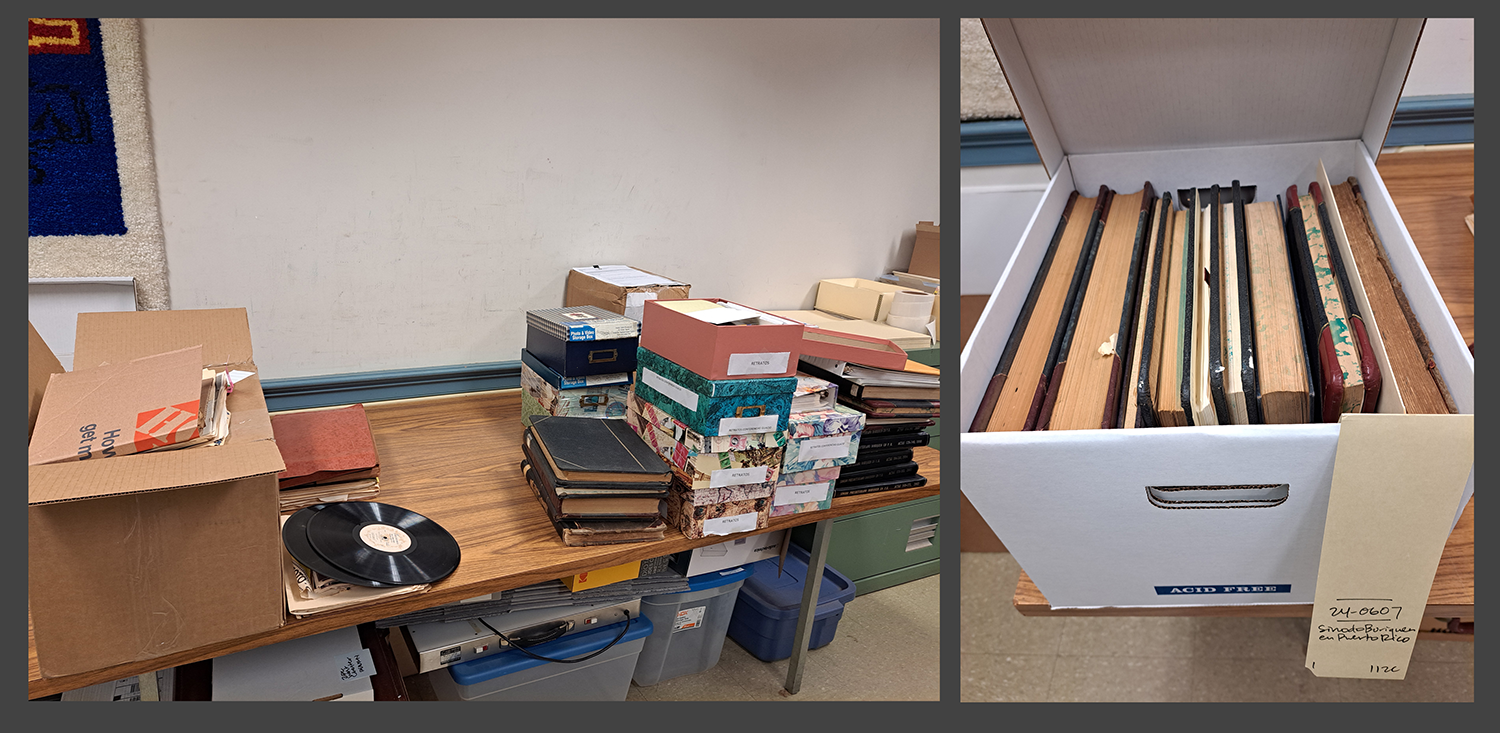On June 10, records from the Sínodo Presbiteriano Boriquén arrived safely at the Presbyterian Historical Society in Philadelphia. Six cubic feet of minutes, photographs, topical files, and phonograph discs were retrieved just a few days earlier by Presbyterian Historical Society Records Archivist David Staniunas.
For decades, Campamento El Guacio has been the center for Presbyterianism in Puerto Rico, and since the 1960s, it served as the unofficial offices of the Synod. When Guacio sustained extensive damage from Hurricane Maria in 2017, the Sínodo Presbiteriano Boriquén moved the records to Tercera Iglesia Presbiteriana in the Balboa neighborhood of Mayagüez.
PHS first visited Puerto Rico in 2018 as an effort to build relationships and collect records. A second trip in 2019 brought the Society to Rincón, where PHS staff retrieved records for digitization from the local church and interviewed the historian Rvdo. José R. Colón Rodríguez. A third trip scheduled for 2020 was put on hold due to the Covid pandemic. With a five-year gap between visits, PHS and staff at the synod were eager to reconnect in 2024.
When asked why the Sínodo Presbiteriano Boriquén invited PHS to review the records at the synod office and at Tercera Iglesia Presbiteriana, former moderator Danilie Hilerio said, “I believe PHS are the ones with the experienced staff, expertise, skills, and equipment to assess the synod records. I would not trust the synod records to another institution.”

Presbyterian Historical Society Archivist David Staniunas reviews the records of Sínodo Presbiteriano Boriquén, Mayagüez, Puerto Rico. Photo by Randy Hobson
When Staniunas arrived at Tercera on the morning of June 8, he was greeted by a nurse, one of the congregation’s elders, who recommended he don full PPE gear to begin appraising the records from Guacio. The documents, housed in more than 40 filing cabinets and dozens of cardboard boxes, had suffered years of environmental damage caused by persistent exposure to humidity. The task in front of Staniunas that day was to assess these records for their historic value.
“There are personnel records of ministers and candidates from the 1960s; mission studies and consultations; records of Presbyterian Women; and photographs, chiefly of activities at Guacio,” Staniunas said. “The collection documents how woven into the fabric of the region Puerto Rico is — there are documents of multiple visits with the church in Cuba, in Venezuela, and in the Dominican Republic. In the 1990s alone, Presbyterians responded to Hurricane Hugo in Vieques, and protested for health and the environment in Mayagüez. The bonds of friendship, kinship, and faith that span the Caribbean are on full display here.”
These documents, along with a run of minutes from the synod’s office, were packaged for transfer to the Presbyterian Historical Society, where the national archives of the PC(USA) will maintain the records in its climate-controlled facility.

Sínodo Presbiteriano Boriquén records prepared for preservation at the Presbyterian Historical Society in Philadelphia. Photo by David Staniunas
Staniunas’s goal was not just to retrieve historic records, it was to team up with synod personnel and equip them with records management and preservation recommendations in order to make their daily record-keeping work easier. He said, “There was a preponderance of temporary financial records, which the synod now should feel confident in clearing out so that the essential records can be fully understood.”
For Hilerio, the work of PHS is necessary: “I believe it is essential for the records to be preserved for future generations and stored in a way that others can have open access, enabling research and study opportunities into mission efforts that took place so we can articulate and contextualized mission efforts into the future.”
She continued, “I appreciate and look forward to additional collaborations that enable PHS to preserve the historical records of the Church in Puerto Rico.”
Video by Randy Hobson. To learn more about preserving church and mid council records at the Presbyterian Historical Society, go here.
